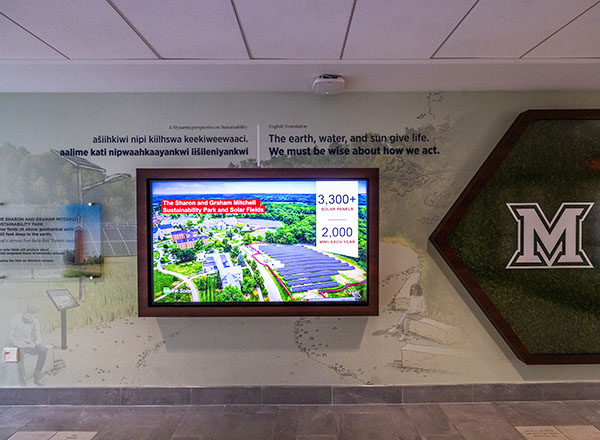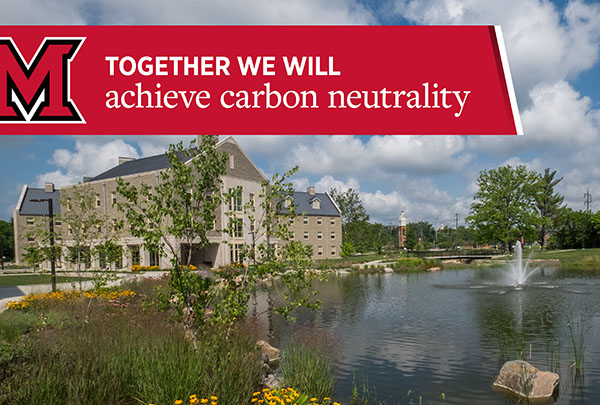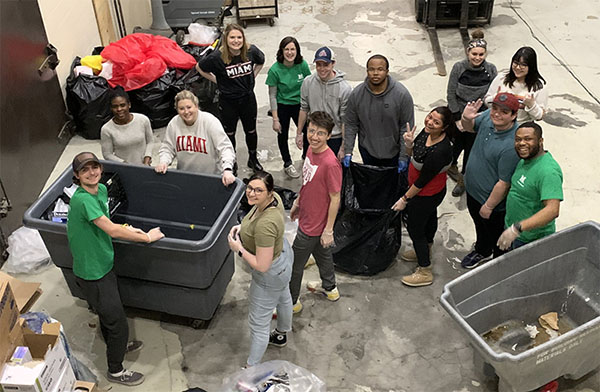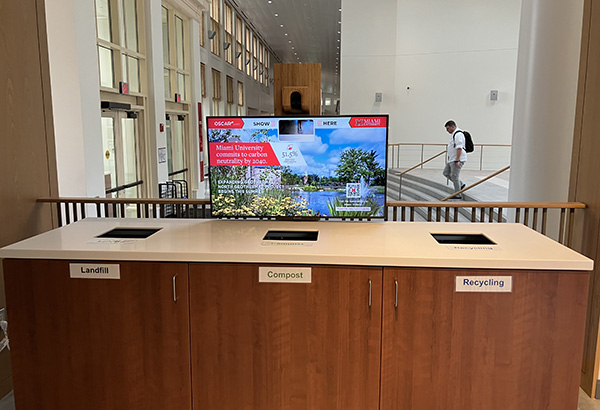
Sustainability at Miami
Miami University is committed to sustainability in our academic programs, physical campus and operations, and university mission by promoting environmental stewardship, social responsibility, and economic viability for current and future generations. This commitment is a collaborative effort that involves students, faculty, staff and external partners.
Sustainability at Miami
Miami University is committed to carbon neutrality by 2040
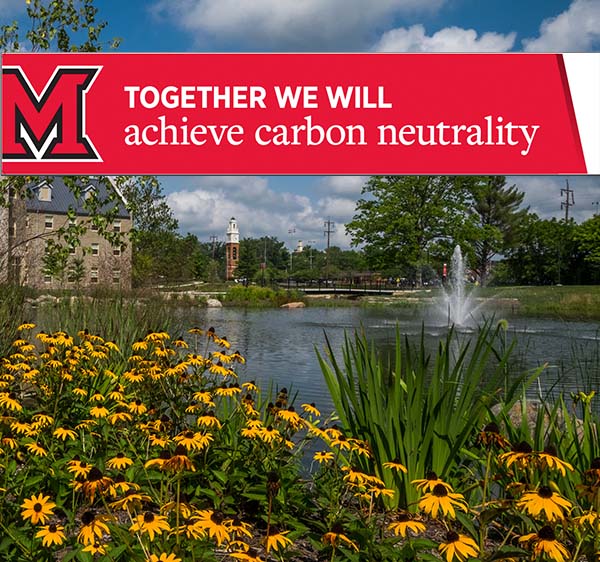
Miami 2040 Climate Action Plan
Recent Sustainability News
Decarbonizing campus
-50%
Utility-based carbon emissions reduction (2008-2025)
-63%
Utility-based carbon emissions reduction per building gross square foot (2008-2025)
-12%
Total Greenhouse Gas (MTCO2e; Scopes 1, 2, 3) reduction (PCLC baseline 2019-2025)
Sustainability Dashboard
The Miami 2040 Plan strategy to decarbonize our energy-based emissions is to further reduce energy consumption; complete the transition of building heating and cooling systems off steam; produce zero-emissions energy on-site; procure purchased electricity from renewable sources; and offset the remainder.
View our progress toward decarbonization on the Dashboard.

New projects support Miami 2040 Plan Goals
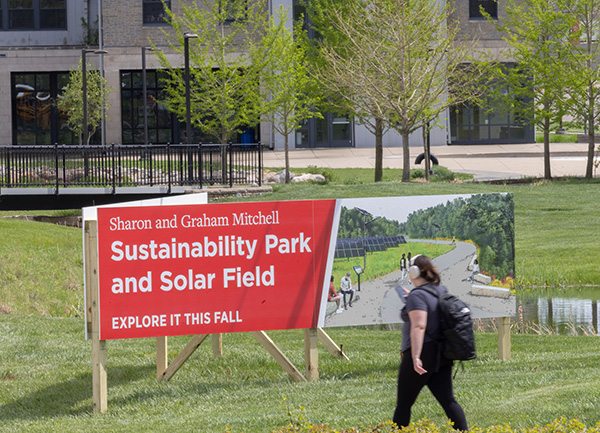
Sharon and Graham Mitchell Sustainability Park and Solar Fields
Two ground mount solar panel installations, expected to produce more than 2,100 megawatt hours (MWh) of electricity annually, will be completed by this fall. The solar fields will be part of the Sharon and Graham Mitchell Sustainability Park, made possible by a $5 million principal gift from longtime Miami and sustainability supporters, Sharon Janosik Mitchell ’73 and Graham Mitchell ’73, M.En. ’76.
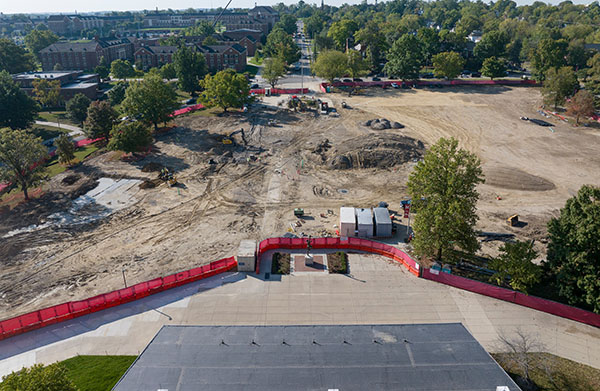
North Geothermal Expansion
North geothermal wellfield drilling is complete: 520 geothermal wells, 850 feet deep, were drilled in the south lawn of Millett Hall, for the North Chiller Plant Geothermal Conversion. The project broke ground in June 2024. Next phase: conversion of the North Chiller Plant to support the geothermal exchange. With completion by summer 2026, this project is Miami's next big step toward reducing carbon emissions. It will eliminate more than 5,810 metric tons of carbon dioxide equivalents in emissions (MTCO2e) annually. (Photo from September)
Sustainability Progress
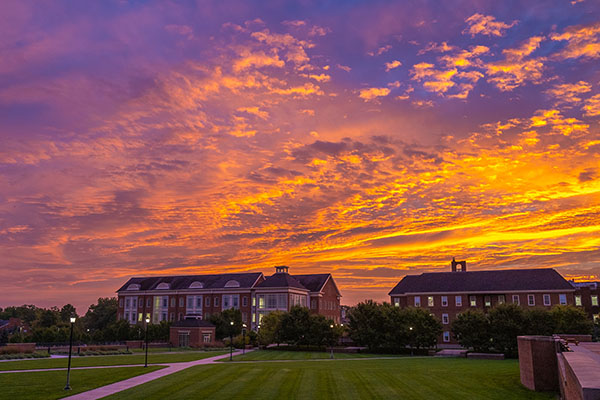
STARS Gold
Miami achieved its third AASHE STARS (3.0) Gold rating in summer 2025 in recognition of sustainability achievements.
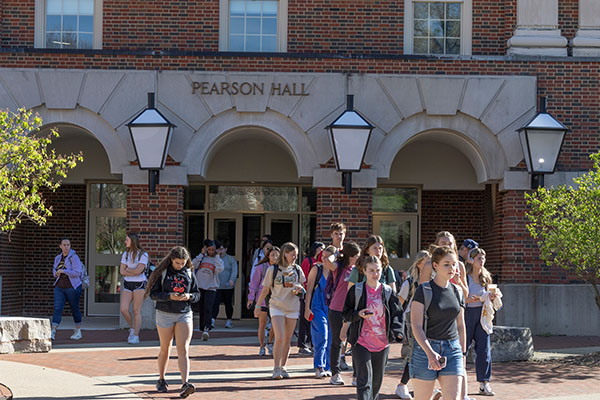
LEED Silver and Gold Certified Buildings
Miami's 36 LEED Silver and Gold-certified buildings (such as Pearson Hall, above) account for 36% of the gross square footage of buildings on the Oxford campus (August 2024).
Waste management: Recycling
Miami makes it easy to recycle: Single stream recycling allows plastics, cardboard, paper, metal, and glass to all be recycled together in one bin.
Academic programs
100% of Miami's Oxford campus academic departments offer sustainability-focused or sustainability-inclusive courses.

Miami Plan: Signature Inquiry on Sustainability and Resilience
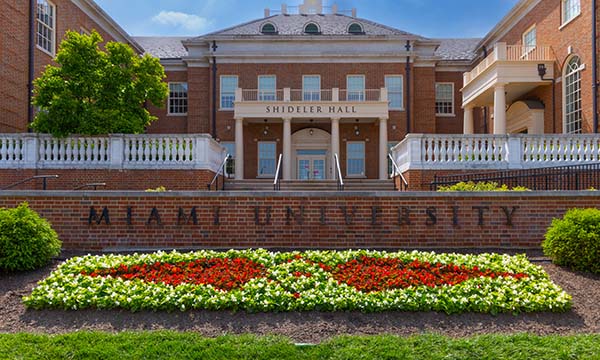
Institute for the Environment and Sustainability
46
Oxford campus departments out of 46 offered Sustainability-focused or inclusive courses in 2023-2024
170
More than 170 Sustainability-focused or sustainability-inclusive courses offered in 2023-2024
Community Partners
Promoting sustainability and climate action across the Oxford and Miami communities
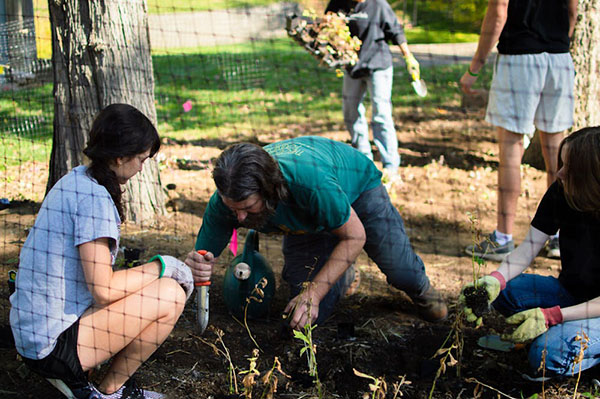
GreenHawks
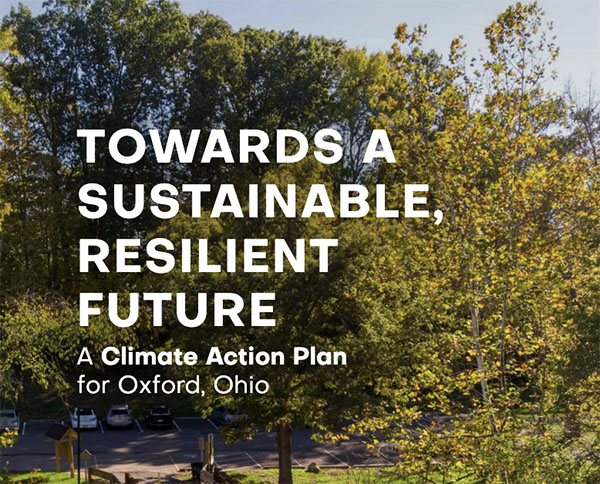
City of Oxford's Climate Action Plan
The city of Oxford adopted a Climate Action Plan in September 2023. This plan acts as a road map for the Oxford community to achieve carbon neutrality and to ensure Oxford remains thriving despite the changing climate.

Oxford Sustainability Monthly
Get involved
Join a student organization, explore the Miami University Natural Areas, take part in research.
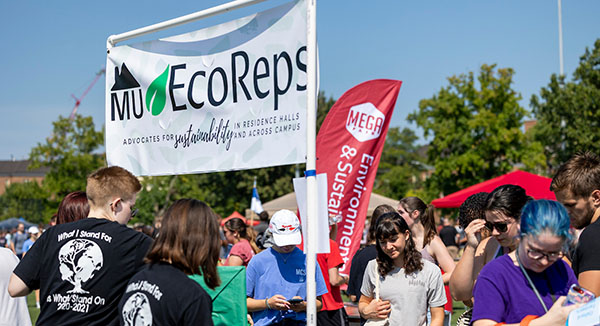
Join a student organization
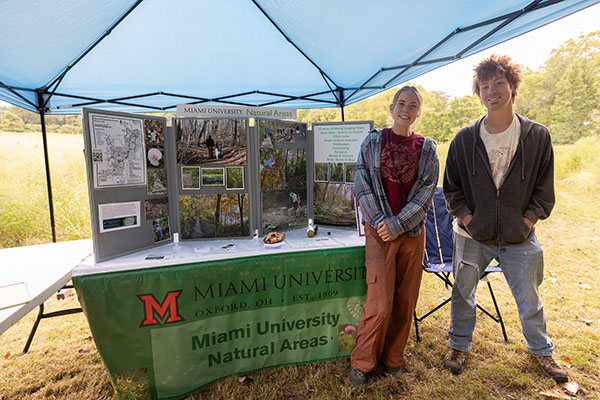
Take a hike, bird watch, explore Miami's Natural Areas
Did you know nearly half of our 2,000 acre campus is designated as forest? With nearly 1,000 acres and 23 miles of trails in our backyard, the Miami University Natural Areas are an invaluable resource for recreation, teaching, and research.
Timeline: Sustainability Commitments and Goals - Pillars
Miami University's first Sustainability Commitments & Goals (SCAG) were developed in 2010 with broad stakeholder input. The Sustainability Committee established an updated SCAG in 2016. In 2021, the SCAG, having been met or exceeded, were replaced by a set of three Sustainability Pillars.
